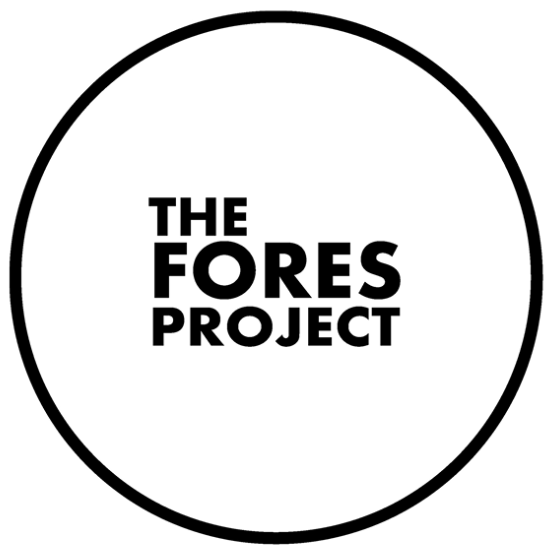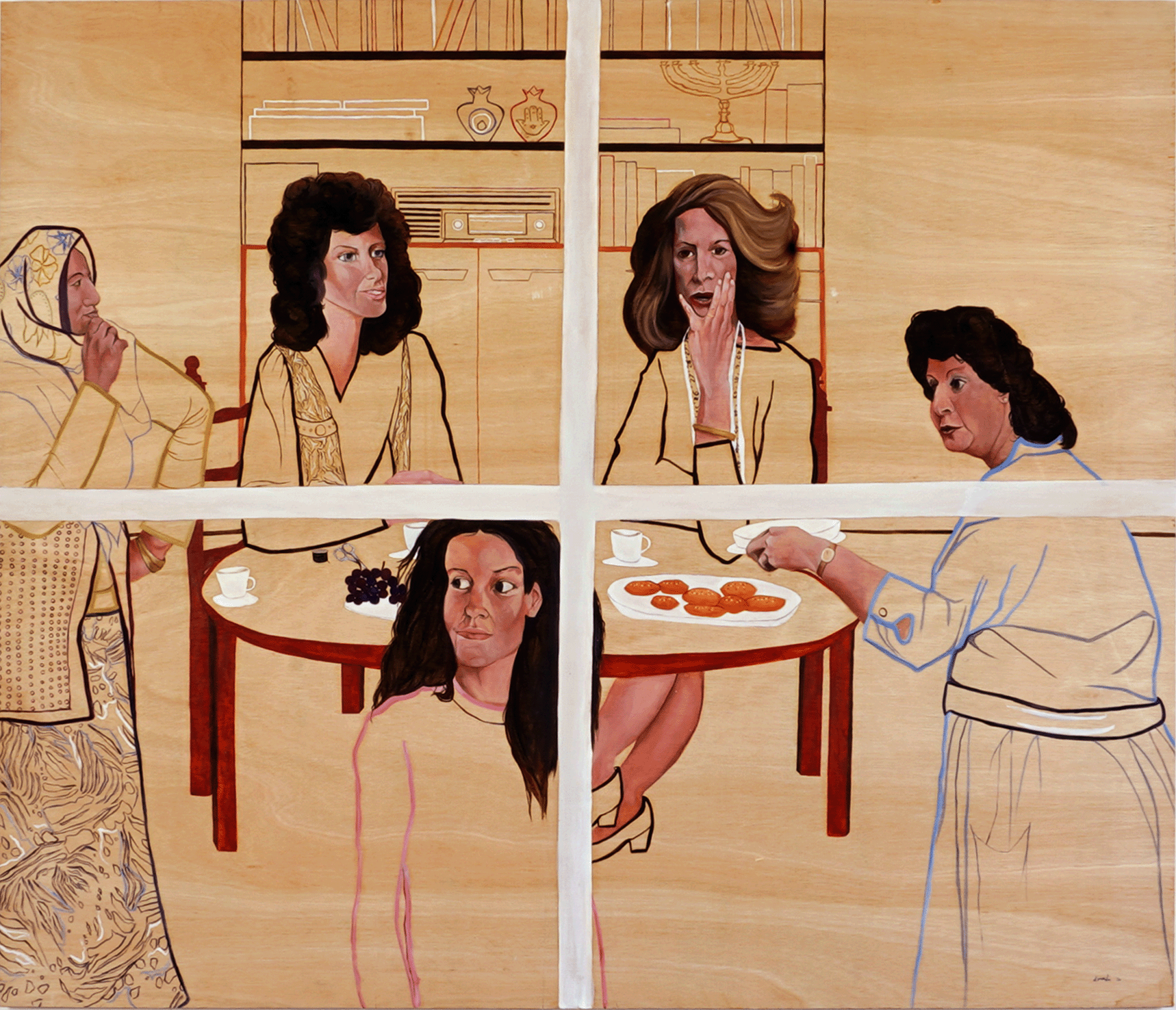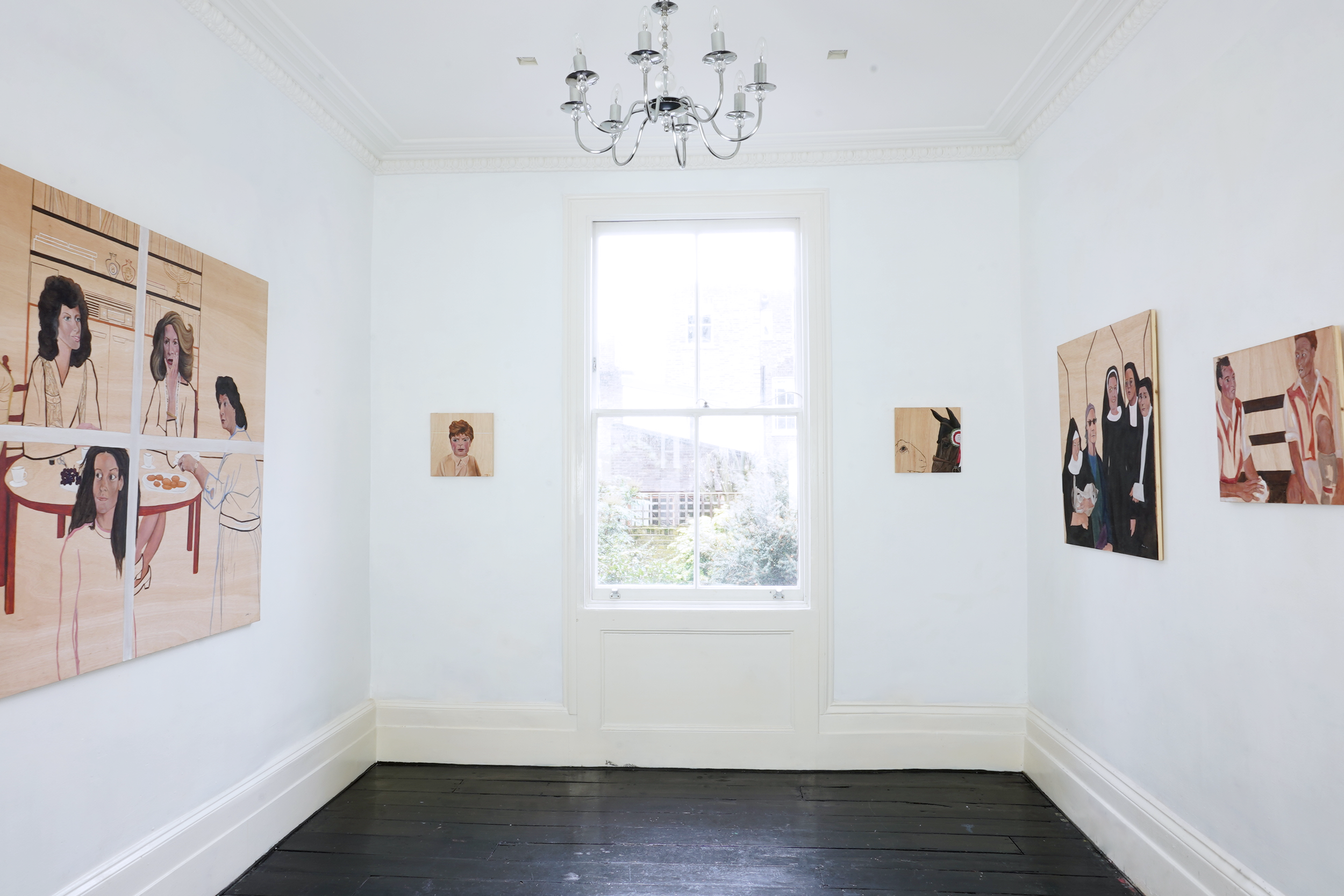LORENA LEVI
Ataduras de Famiya. Family Ties. Ladino, a Language spoken by Sephardic Jews settling in the eastern Mediterranean after expulsion from Spain in the 1400s, is a moribund language on the verge of extinction. Levi, though not a Ladino speaker, is familiar with the language through her father and extended family. This new series speaks to a multi-generational diaspora, an intimate use of language and the shielding of culture. Ladino as a 'secret language' refers to an experience of intimacy within a closed-off culture where Judaism was a secret shared between only the members of a household and trusted members of a community. Diverging from her usual focus on strangers found in chatrooms or overheard on podcasts, Levi delves into her family history and her parent’s experiences growing up Jewish in Istanbul.
In previous series, Levi’s works have carried a voyeurism to them, characters pulled from the artist’s imagination tucked into intimate settings, the living room, the car, and the therapist’s office. In, Atadurus de famiya this sense of intrusion is continued. Windowpanes are utilised to create barriers between the viewer and the scene. In Cuando las señoras vienen a tomar café y borek (when the ladies come for coffee and borek), 2024 we are pushed into the periphery, as though we are observing a clandestine meeting. At the same time, the scene is familiar, a ‘mothers meeting’ in the heart of the home, where aunts, daughters, close friends, and grandmothers meet to gossip over coffee and cake. This creates a strange tension between the work and the viewer, we understand this scene, yet we are not a part of it, we are only an observer.
In other works, Levi addresses the tension between two cultures. What’s in a name, 2024 depicts a ewe and a horse, the ewe an unfilled outline next to the detailed Horsehead. The work comments on the decision when naming Levi’s mother; to follow tradition with Rachel, a popular Hebrew girl’s name meaning ewe or, assimilation with Shelia (Seyla), a famous Iranian racehorse. The final decision came down to how best she might fit in at school. A name is not just a name but a representation of a wider urgency to integrate into a community. This dissonance between cultures continues in Lavando los pies komo una buena esposa (washing his feet like a good wife), where a woman married into a Turkish family washes her husband’s feet each night, an act of supplication in which a wife is below her husband. This is particularly in contrast to the matriarchal setting of Cuando las señoras vienen a tomar café y borek (when the ladies come for coffee and borek), 2024. This act becomes another form of language within the works, the intimacy within a private gesture that represents something bigger. The washing of feet is a representation of relinquishing power in a relationship, and a relinquishing of part of your own culture for another.
The works speak not just to a generational experience but Levi’s own diaspora, leaving Istanbul for Britain as a young girl. To an extent, the artist also experiences these works from a distance, formed from stories of a community she sits on the periphery of and the cadence of a language she can’t speak.











